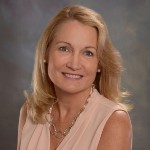- Asset-based loan commitments grew in 2023, with fewer new clients, but larger deals
- A Unique Journey to Secured Finance: Interview with Jacob Shoihet and Peter Spradling of Marco Capital
- SFNet Launches IMPACT Awards to Celebrate Excellence in the Secured Finance Industry
- Wintrust Receivables Finance Announces Closing of $3M Line of Credit for Growing Third-Party Logistics Company
- Citigroup’s Shapleigh Smith Retiring; Shane Azzara to Head Asset-Based and Transitional Finance
Where Will You Be Lending in Post Pandemic Healthcare Markets?
By Susan Carol
During the Secured Finance Network’s webinar on the healthcare finance sector, streamed May 15, Allen Wilen of EisnerAmper, described a future scenario affected by human longevity, geographic location and how COVID-19 affected you. New trends relevant to finance executives are accelerating out of necessity because of the sudden impact of the coronavirus pandemic and the weaknesses it illuminated.
He pointed to the growing acceptance of telemedicine, Amazon-like home delivery of goods and likely preferences for home health solutions. Wilen also noted how technology expansion is in “hyperdrive,” and applications in development now will aid in memory care and home health solutions. Fear of virus contagion in hospitals will give rise to more usage of independent surgery centers and a decline in group care facility construction.
Moderator and panelist, Michael Coiley, managing director in CIT’s Healthcare Finance business, agreed with Wilen on how perceptions and experiences differ by geographic region. Concerning hospitals, Coiley said, “It’s a tale of two cities.” For example, if you reside in New York City or northern New Jersey, you’ve seen hospitals at overcapacity with pop-up hospitals in Central Park, hospital parking lots and convention centers. In the Midwest and more rural areas of the nation, hospitals prepared for an influx of COVID-19 patients, but then didn’t see anywhere near the number of cases anticipated. Thus, they are dealing with revenue losses due to the elimination of elective procedures that would have typically been done at those facilities.”
Questions from the 160 attendees focused on the details needed to understand the various government stimulus programs. This was addressed by Jennifer Sheasgreen, Siena Healthcare Finance. She provided an overview of the loans and potential grants included in the $2 trillion Cares Act and strongly recommended that borrowers need to maintain detailed records and reserve capital for repayments. While the Paycheck Protection Program (PPP) offered by the Small Business Administration has a loan forgiveness feature, there are some risks to manage. Already, some $30 billion has been paid out by federal government agencies, but there is conflicting program guidance—some vague, some still changing.
The panelists said healthcare industry CFOs who have taken advantage of the Advanced and Accelerated Payment Program will need to focus on their cashflows four to six months out, when Medicare commences their recoupment. Further, the various government programs and the potential for subsequent forgiveness, may have an impact on financial covenant calculations.
(see program slides highlighting the grants and loans under the Cares Act.)
Wilen noted there will be some financial recovery for medical institutions when elective surgical procedures rebound and medical centers meet the pent-up demand for postponed procedures.
“It may be slow at first—maybe take six months or more,” he said. The problem will be that people are going to die from not getting treatments for chronic medical problems rather than from COVID-19, he observed. And, he said some people have high deductibles in their insurance plans that may also cause them to delay procedures even further—perhaps until next year.
Other pandemic-related effects on the healthcare sector noted by the webinar panel included:
- law firms will be filing “business interruption claims” for surgery center clients;
- manufacturing of goods will be brought back to the US, especially production of critical healthcare items;
- there will be more focus on safety in skilled nursing homes;
- the healthcare supply chain will be addressed to fix the inefficiencies that have become apparent;
- drug development is likely to evolve more rapidly;
- more analysis of asset-based lending receivables will be needed in this evolving market.
The SFNet webinar was part of the association’s “Crucial Conversation Series.”



